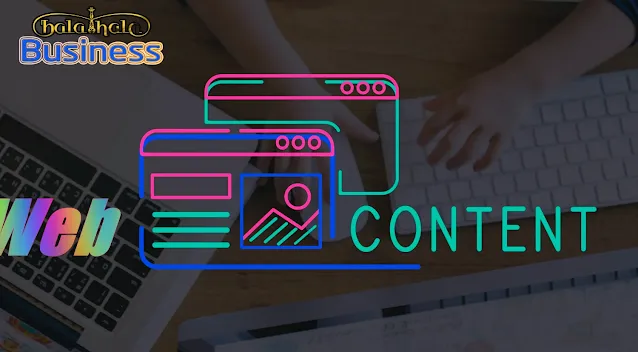To write for the web and attract prospects to your site, it is essential to consider both web content (and its techniques) and Google.
 |
| Web Content |
Your web content must be optimized for natural referencing to be seen by search engines and increase your chances of being viewed and read by your target audience!
Web writing covers all types of web content: pages, articles, landing pages, and also when displaying testimonials from satisfied customers on your site.
One keyword per web page determined based on your target audience
For clarity for both readers and search engines, your golden rule will be to agree on a single keyword per web page, determined based on your theme and the web searches that your targeted readers or internet users will perform.
Writing for the web implies a desire to increase your presence on search engines to maximize the chances of being seen by your target audience. Thus, a URL becomes a direct access to your site, accessible from a query in a search engine.
Choosing this keyword will dictate the framework of your article. It will be crucial to choose it well and cleverly work on its web content. Indeed, conforming to Google's logic is being clever!
Craft your title (your H1) according to your target audience and the robots
The title of your page (H1) must be compelling to encourage internet users targeted by your theme to click on your link. The title of your page is the first element that the internet user sees.
Therefore, it must be enticing to increase the click-through rate. Your title should be clear and contain your keyword, preferably at the beginning so that the internet user immediately knows what the subject of your page or article is.
"Search engines" or robots give significant weight to your title. This is why your keyword or main key phrase must be found there. The "title" tag is thus the major point ensuring that the subject of your page is immediately identified by your readers and by the robots.
Write a concise and explicit first paragraph
The writing quality of your first paragraph is crucial in the decision of the reader/target audience to continue reading your content in depth.
Your first paragraph must be attention-grabbing. It should be clear, catchy, concise, AND make the reader want to continue!
Subdivide your web content into different paragraphs
Having subheadings in your web content only has virtues! It's a great way to give more weight to your web content and attract the internet user.
Indeed, not only do subheadings (like H2, H3) allow you to space out your content and make it easier to read for your targeted visitor, but it's also an excellent way to please Google, which, just like your reader, tends to read your texts "diagonally."
The format of the web content gives a boost to your visibility
Emphasizing certain words or key phrases in bold, as well as alternating with italics or indentation (retraction), are simple and effective techniques to highlight your content and contribute to improving your natural referencing.
Images to illustrate your web content
Inserting images on your web page will accelerate the positioning of your web content in search engines. Aesthetically pleasing and well-chosen according to the theme you are addressing, images will also bring you traffic. So why miss out on them!
Complete the "meta description" of your web page
The <meta description> tag is visible to the internet user from the search results list. Indeed, Google doesn't use the content of the "meta description" to rank your page, but it will use it in its results. A good tip: use the main keyword expression of your page, right at the beginning of this description.
This "meta description" will generally be read by your readers/target audience, so take the time to write the "meta description" of your web content. This concise description of your page must be compelling.
Remember: the "meta description" does not directly impact the ranking of your pages, but it directly influences the click-through rate of internet users in the results!
web content Hyperlinks
For the internet user, a link within a text paragraph generally indicates that there will be more details, explanations, or additional information on this subject on another page.
If your subject is what interests your target reader, don't miss the opportunity to engage your target because the hyperlink is the essence of the web. Search engine robots will crawl new pages of your site!
A significant advantage, by creating a link on a key phrase or keyword, the strength of your destination page will be reinforced.
In summary, satisfying the visitors you have targeted with your content and satisfying the robots is your mission!


0 Comments